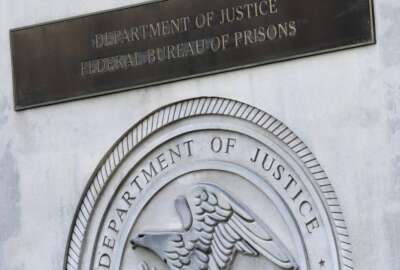

Hundreds of FBI employees under investigation for alleged misconduct either retired or left the agency over nearly two decades before the Justice Department made a...
Hundreds of FBI employees under investigation for alleged misconduct either retired or left the agency over nearly two decades before the Justice Department made a final ruling in their case, according to agency documents obtained by the top Republican on the Senate Judiciary Committee.
According to documents a whistleblower provided to Sen. Chuck Grassley (R-Iowa), DOJ’s Office of Disciplinary Appeals found 665 FBI employees, including 45 Senior Executive Service (SES) employees, retired or resigned following an FBI or DOJ Office of Inspector General investigation into alleged misconduct.
The DOJ documents don’t specify how many of the allegations are linked to sexual misconduct, but Grassley, in a letter to FBI Director Christopher Wray and Attorney General Merrick Garland, generally described the cases as investigations into sexual misconduct.
“It’s been alleged to my office that the data involved an element of sexual misconduct … The committee welcomes any clarity the Justice Department is able to provide,” Grassley wrote.
The documents also outline DOJ’s concerns that senior officials at the FBI are facing lighter penalties than other employees for similar misconduct.
The FBI employees in question left the agency between 2004 and December 2020, before the DOJ’s Office of Professional Responsibility issued a final disciplinary letter in their case.
The DOJ data doesn’t include resignations or retirements that occurred prior to the initiation of a misconduct investigation or during an ongoing investigation.
The FBI said in a statement that “employees who commit gross misconduct and sexual harassment have no place in the FBI,” and that it prioritizes the investigation and adjudication of sexual harassment and misconduct cases.
When allegations of sexual harassment are substantiated, the FBI said its employees face severe consequences, including permanent demotion, removal from supervisory positions and termination.
However, the FBI said it “cannot legally stop someone from resigning or retiring.”
“It is infuriating that we are left with little disciplinary recourse when people leave before their case is adjudicated,” the agency said in its statement. “Under circumstances where an employee leaves under inquiry, the FBI takes available steps to ensure that the individual’s file reflects that they left under inquiry, which may lead to disqualification from certain privileges otherwise available to former law enforcement, among other things.”
Stacey Young, president of the DOJ Gender Equality Network, which was founded in part to address sexual misconduct across the agency, said the organization is “outraged, but not surprised, to learn about this latest example of the problem.”
“We’ll continue fighting for meaningful reforms until perpetrators of sexual misconduct are held fully accountable, and all DOJ workers feel safe and supported while doing their jobs,” Young said.
The Associated Press in December 2020 reported on eight allegations of sexual misconduct against senior FBI officials over five years.
FBI Director Wray, in response to the AP report, issued a “zero tolerance” directive establishing an Executive Working Group on Sexual Harassment, Misconduct, and Workforce Integrity, setting up a 24/7 hotline and implementing changes to each phase of its processes and policies regarding sexual harassment and misconduct.
But a second DOJ document obtained by Grassley details “inconsistent adjudication of non-consensual sexual misconduct” cases since Wray issued his zero-tolerance policy.
The document states that disciplinary procedures ranged from a seven-day suspension to dismissal, “with little or no explanation.”
The memo found the only discernible pattern in disciplinary procedures was that higher-grade employees, especially supervisors, were more likely to have their sexual misconduct case adjudicated under a lesser offense code, “and therefore subjected to lesser penalties,” while lower-grade employees were more likely to be adjudicated a different Offense Code and faced a “statistically greater likelihood of being dismissed for their sexual misconduct.”
“Recent sexual misconduct cases appear to show OPR’s application of this directive has resulted in seemingly random penalties and disparate treatment, potentially compromising the consistency, fairness, and due process of the FBI’s disciplinary system,” the memo states.
Grassley, in a press release disclosing portions of the whistleblower documents, said the results of this DOJ “are very troubling, to say the least.”
“Simply put, these two documents show a systemic failure within the Justice Department and FBI to protect female employees from sexual harassment and sexual misconduct in the workplace and a failure to sufficiently punish employees for that same misconduct,” Grassley said. “FBI employees should not have to suffer under daily abuse and misconduct by their colleagues and supervisors.”
Grassley said he holds copies of each document, but is not publicly releasing them in full, in order to protect against whistleblower retaliation.
Following the AP report, DOJ recommended the FBI fast-track all investigations and adjudications of unwanted sexual conduct, “in order to minimize the likelihood of subject-employees reaching retirement eligibility during a pending disciplinary inquiry.”
It also recommended the FBI conduct an independent audit of all unwanted sexual complaints received by the FBI’s inspection division, compared to how many inquiries the bureau actually opened.
“It is unclear if these, as well as the other recommendations, have been fully implemented as needed and, if so, what the results are,” Grassley wrote in his letter to Wray and Garland.
The FBI is not the only DOJ component under fire for allegations of systemic sexual harassment.
Former Bureau of Prisons Director Michael Carvajal stepped down on Jan. 6 this year, the same day that Deputy Director Gene Beasley also stepped down, following AP reports that found more than 100 bureau workers have been arrested, convicted or sentenced for crimes since the start of 2019, including a warden charged with sexually abusing an inmate.
Copyright © 2025 Federal News Network. All rights reserved. This website is not intended for users located within the European Economic Area.
Jory Heckman is a reporter at Federal News Network covering U.S. Postal Service, IRS, big data and technology issues.
Follow @jheckmanWFED

